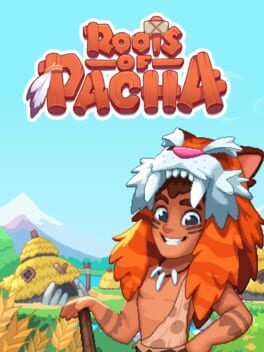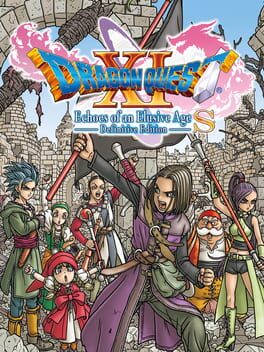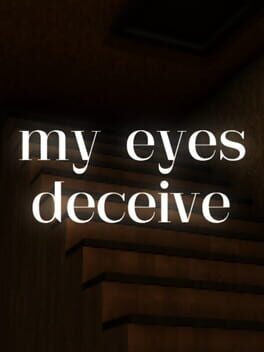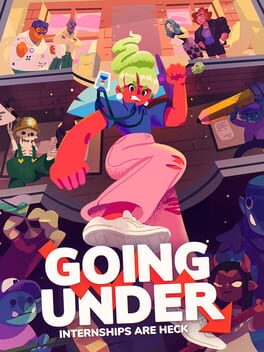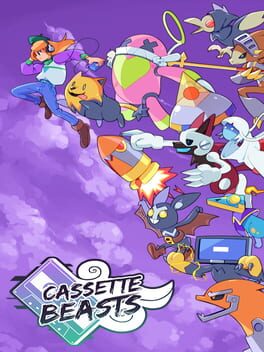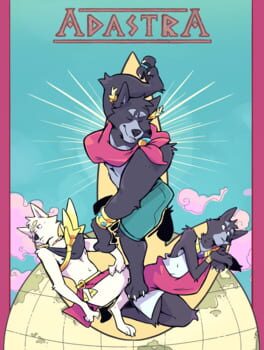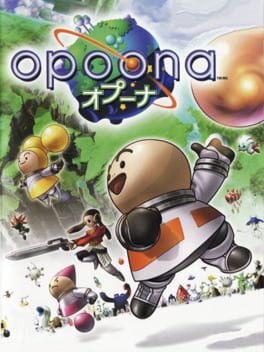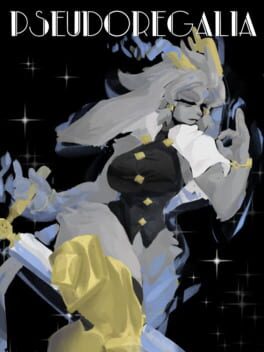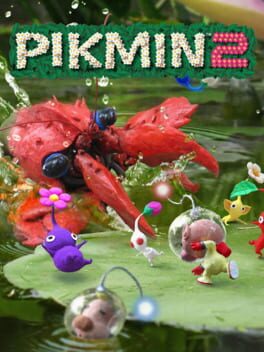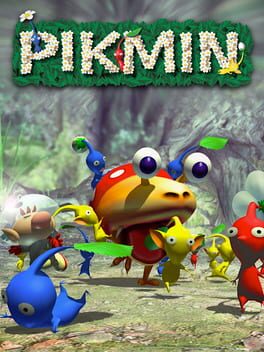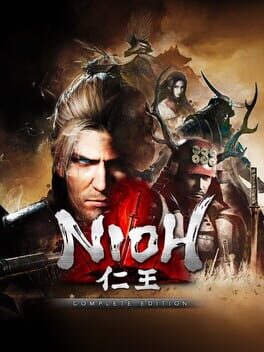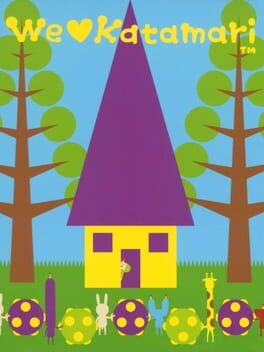MeiCheesecake
2022
In my opinion this is one of those games that suffers from being open world more than it benefits from it. The absurd amount of crafting ingredients makes even the purple item pickups not be something I'm excited about. The vast open space and the refusal to have any way to track questlines makes content even more missable than they already were in Dark Souls. The amount of very similar catacombs and mines with the same bosses just to fill the empty space sucks.
But in terms of action, this is probably the best it has ever felt. I was also way more invested in the storyline than in any other souls game because this is a world that feels alive and able to be meaningfully changed. This is also a really pretty game, it's nice to finally see a color other than gray in a Souls game and all the designs are really cool. The spirit ashes are another way to grant you the power to adjust your own difficulty and it's much appreciated.
But in terms of action, this is probably the best it has ever felt. I was also way more invested in the storyline than in any other souls game because this is a world that feels alive and able to be meaningfully changed. This is also a really pretty game, it's nice to finally see a color other than gray in a Souls game and all the designs are really cool. The spirit ashes are another way to grant you the power to adjust your own difficulty and it's much appreciated.
2023
There are a lot of interesting ideas here that I really like, like the whole prosperity points system, irrigation and the setting itself, but it feels like there's no interest in doing anything more interesting with them than having them as a background to an otherwise generic Stardew Valley farming cozy game of the month. I really enjoyed this when I was playing it, but looking back at it now just makes me sad.
Really fun RPG! The mechanics are very simple compared to a lot of recent RPGs, which helps you really appreciate the vibes. The graphics are beautiful, I love the use of color and shading, the Toriyama style really shines here. The music is what you'd expect, I just wish there was more variation.
Act 1 was really fun, the whole usual JRPG lets save the world kind of deal with a sorta predictable twist. Act 2 had a cool concept and pretty alright execution even if revisiting places and recruiting people again felt too repetitive at some points. Act 3 had the best story in my opinion, but the difficulty spike was so tall that I had a hard time having any fun without grinding (I gave up on grinding so I didn't finish all the side content). Overall pretty typical Dragon Quest story, but it can be refreshing to come back to a franchise that is so sincere and wears its heart on its sleeve.
Act 1 was really fun, the whole usual JRPG lets save the world kind of deal with a sorta predictable twist. Act 2 had a cool concept and pretty alright execution even if revisiting places and recruiting people again felt too repetitive at some points. Act 3 had the best story in my opinion, but the difficulty spike was so tall that I had a hard time having any fun without grinding (I gave up on grinding so I didn't finish all the side content). Overall pretty typical Dragon Quest story, but it can be refreshing to come back to a franchise that is so sincere and wears its heart on its sleeve.
The lizard and the sentinel guy were a nightmare but overall this is a really good game. The environment is really pretty and it's very to the point, you have all the tools you need right off the bat and you have to figure out ways to use them together with the environment. It feels like hell to control but that's part of the charm to an extent.
2023
This is like the video game equivalent of those "extreme horror" books. You made something shocking, congrats. What for? Does this say anything? Does this bring awareness to anything? Does this instill any sense of hope for those who have gone through something similar? Or did you just think "what if you thought everything was normal then bam CSA hahahaha wouldnt that be fucked up"?
2020
2019
(Played the mobile version)
The presentation is really unique and I was surprised on how engaging it is despite it pretty much being an idle game. That was during my first hour of the game, though. It soon just becomes a number game you have to buy microtransactions to win. Really sad something as unique as this resorts to that.
The presentation is really unique and I was surprised on how engaging it is despite it pretty much being an idle game. That was during my first hour of the game, though. It soon just becomes a number game you have to buy microtransactions to win. Really sad something as unique as this resorts to that.
2023
The gameplay felt a little overwhelming at times with all the different type interactions and the fact that you can swap between moves so easily. There were some harsh difficult spikes near the beginning and toward the end, and a pit in the middle. Also the party and storage system is really clunky. But besides that, it's a really fun game! ! I love all the different art styles (especially on the archangels), the music and all the creature designs. The story wasn't very deep but it was fun too. The gameplay was really solid despite my complaints, and the NPC fights highlight some cool unique gimmick strategies you can make work really well on your own.
2018
I think there was a point in my life where I'd have liked it more, but right now it's just fine. The characters are interesting, the plot is entertaining, the emotional beats mostly hit, it's fine. The worldbuilding has some weird implications that I don't really want to know the answer to. It's fine.
2007
There are a lot of things to complain about this game. The weird difficulty spikes, the slow menus, the lack of diverse gameplay systems. But shallow? Opoona is anything but.
Opoona, at least in its first arc, is a game that explores what it means to be a citizen. Its society lies somewhere between utopian - due to how many systems are in place to ensure you have an intuitive time getting through your quotas - and dystopian, for arguably the same reason. All of your worth as a citizen of the domes is determined by the work you can do. Your primary job is chosen for you against your will, and there are certain careers that are forbidden to you due to you being a foreigner to the planet Landroll. There are numerous NPCs stuck in airports or outside of the city because they have lost their ID, or simply never allowed to have one. You are lucky to be from a "nicer planet", they tell you, while at the same time patronizing and excluding you if your existence is not deemed profitable enough at that place and time.
Yet, the world is not bleak. At least not to you. You are allowed an ID, multiple job opportunities, places to rest, a couple free meals and a variety of friends. The domes, while sometimes labyrinthine and cold, have a certain beauty to their architecture and how well things flow. The right symbol always leads to the right place. The counters are always in the same order. Every process has the same steps to completion. The fact that most gameplay mechanics are either menu, single button presses or reskins of the battle system might be a sign of the game's lack of "depth" to some, but to me it's simply an extension of the way the game represents the highly bureaucratic Landroll society.
I chose to acquire the license for (and progress through a good amount of) every side job. This game can be quite easy if you spend a couple of extra minutes grinding, so the extra money wasn't necessary. But it made me feel like I was contributing something to someone. Janitors in Landroll are held in high praise for their skills, and rightfully so. Art is a vital part of society, even though it's highly commodified and treated like a product of a job quota instead of an expression of the self. People are given jobs that are adequate for their specific needs, so everyone can contribute no matter what their physical or mental capacity is.
When you do go outside of the domed portion of society in the game's second arc, you really start to notice the faults of the system. Even without the influence of the Dark Force, it is a system that hates outsiders and people they can't exploit to their full capacity. The game becomes a sort of Dragon Quest-like narrative at this point (ArtePiazza worked on handful of those, so it makes sense that they nailed that feeling very well), but I care so much about the world by that point that I actively want to save it, because I care about the people in it. There is a beautiful world outside of the domes (really, the graphics in this game are actually really good), and I want to make sure the people living out there are also safe and cared for as much as they care for each other.
I can't really call this a utopia, but I wouldn't call it a dystopia either. It's a society that values convenience above humanity, and yet humanity still manages to shine through. You may be forced to work a dumb job you didn't ask for until society deems you have no more purpose, but at least you get free breakfast and an opportunity to bond with your friends over it.
Opoona, at least in its first arc, is a game that explores what it means to be a citizen. Its society lies somewhere between utopian - due to how many systems are in place to ensure you have an intuitive time getting through your quotas - and dystopian, for arguably the same reason. All of your worth as a citizen of the domes is determined by the work you can do. Your primary job is chosen for you against your will, and there are certain careers that are forbidden to you due to you being a foreigner to the planet Landroll. There are numerous NPCs stuck in airports or outside of the city because they have lost their ID, or simply never allowed to have one. You are lucky to be from a "nicer planet", they tell you, while at the same time patronizing and excluding you if your existence is not deemed profitable enough at that place and time.
Yet, the world is not bleak. At least not to you. You are allowed an ID, multiple job opportunities, places to rest, a couple free meals and a variety of friends. The domes, while sometimes labyrinthine and cold, have a certain beauty to their architecture and how well things flow. The right symbol always leads to the right place. The counters are always in the same order. Every process has the same steps to completion. The fact that most gameplay mechanics are either menu, single button presses or reskins of the battle system might be a sign of the game's lack of "depth" to some, but to me it's simply an extension of the way the game represents the highly bureaucratic Landroll society.
I chose to acquire the license for (and progress through a good amount of) every side job. This game can be quite easy if you spend a couple of extra minutes grinding, so the extra money wasn't necessary. But it made me feel like I was contributing something to someone. Janitors in Landroll are held in high praise for their skills, and rightfully so. Art is a vital part of society, even though it's highly commodified and treated like a product of a job quota instead of an expression of the self. People are given jobs that are adequate for their specific needs, so everyone can contribute no matter what their physical or mental capacity is.
When you do go outside of the domed portion of society in the game's second arc, you really start to notice the faults of the system. Even without the influence of the Dark Force, it is a system that hates outsiders and people they can't exploit to their full capacity. The game becomes a sort of Dragon Quest-like narrative at this point (ArtePiazza worked on handful of those, so it makes sense that they nailed that feeling very well), but I care so much about the world by that point that I actively want to save it, because I care about the people in it. There is a beautiful world outside of the domes (really, the graphics in this game are actually really good), and I want to make sure the people living out there are also safe and cared for as much as they care for each other.
I can't really call this a utopia, but I wouldn't call it a dystopia either. It's a society that values convenience above humanity, and yet humanity still manages to shine through. You may be forced to work a dumb job you didn't ask for until society deems you have no more purpose, but at least you get free breakfast and an opportunity to bond with your friends over it.
2023
The movement feels really good in this game! Oftentimes you can just schmove your way through sections that you're not supposed to, which feels great but also makes it just a tad more difficult to find where you're actually supposed to be going. The lack of a map and general signposting didn't bother me so much since it's such a short game, but I can imagine it gets frustrating if you take a longer time between play sessions.
The combat is probably the weakest point in this game. There's no stagger and a general lack of "juice" (as much as I hate that term being used to describe a set of effects that really shouldn't be as universal as people claim they should be) to the attacks. The disarming mechanic is never properly explained or required to progress, which is a shame since it's one of the things I really wanted explored more since the developer's past jam game STRATO-SPEAR. The menus also are really lacking in polish, especially the settings one which feels really clunky to navigate with a gamepad (and the resolution and windows settings don't seem to work at all sometimes).
The combat is probably the weakest point in this game. There's no stagger and a general lack of "juice" (as much as I hate that term being used to describe a set of effects that really shouldn't be as universal as people claim they should be) to the attacks. The disarming mechanic is never properly explained or required to progress, which is a shame since it's one of the things I really wanted explored more since the developer's past jam game STRATO-SPEAR. The menus also are really lacking in polish, especially the settings one which feels really clunky to navigate with a gamepad (and the resolution and windows settings don't seem to work at all sometimes).
2004
I really loved the improved AI, ability to choose a specific type to throw (even if it was finicky) and the greater enemy variety. The caves were fine at first even though they started to feel samey very quick. They started pulling some baffling design decisions towards the end which I am very mad about and very glad the game saves on each floor. Would go back and get all treasures if the doomsday apparatus wasn't so grueling to get.
2001
Pretty alright, but I wish it was shorter. The sub missions don't really add much to it, I wouldn't have done them if I knew that because it made me pretty tired of the otherwise pretty alright level design. Combat system is fun, but by the endgame it kinda becomes a question of whether or not you have big enough numbers on your gear (or enough patience if you don't).
2005

